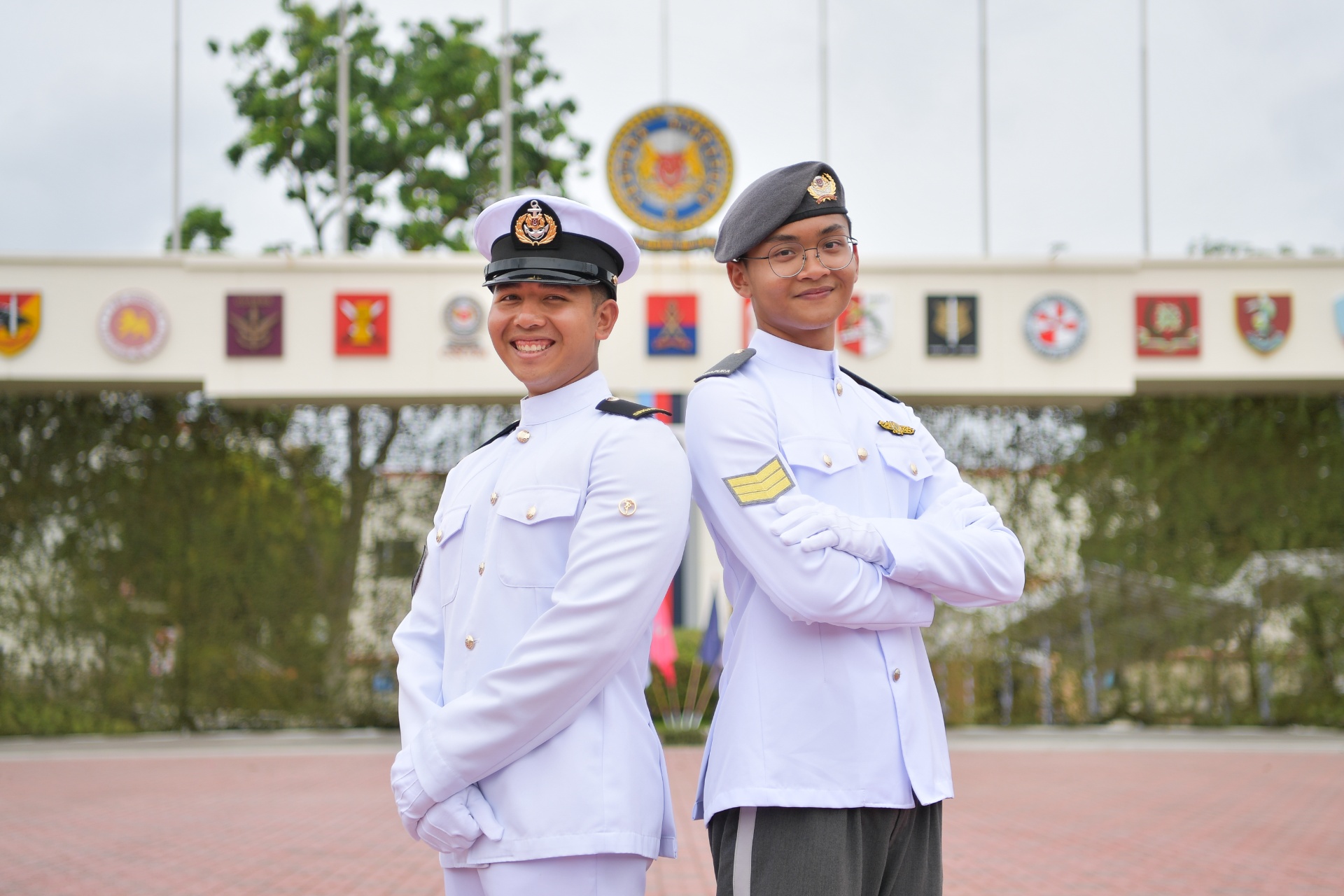PEOPLE
Combat medic learns to save lives in SAF-SCDF attachment
03 Mar 2025
LCP Chen Anhong stepped up to treat patients and provide emergency medical services during his six months with the SCDF.
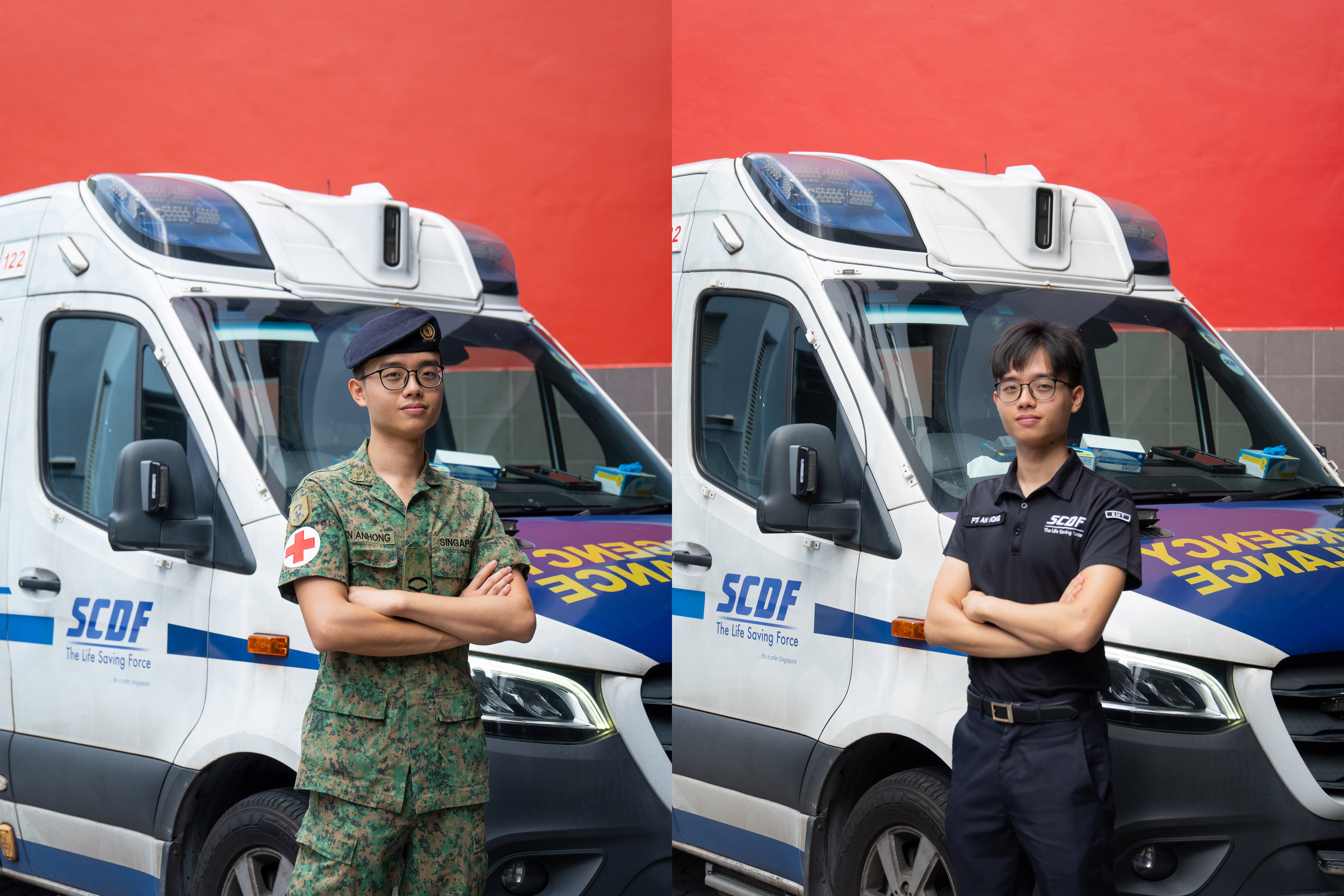
The dispatch siren blares across the halls of the Alexandra Fire Station. Several people have been injured after a multi-vehicle collision along West Coast Drive.
Within a minute, the ambulance crew – a paramedic, an Emergency Medical Technician (EMT) driver and a Full-Time National Serviceman (NSF) EMT – is ready.
But this was not your typical crew. The NSF EMT, Lance Corporal (LCP) Chen Anhong, is also a Singapore Armed Forces (SAF) combat medic.
And this would be his first time treating patients on his own.
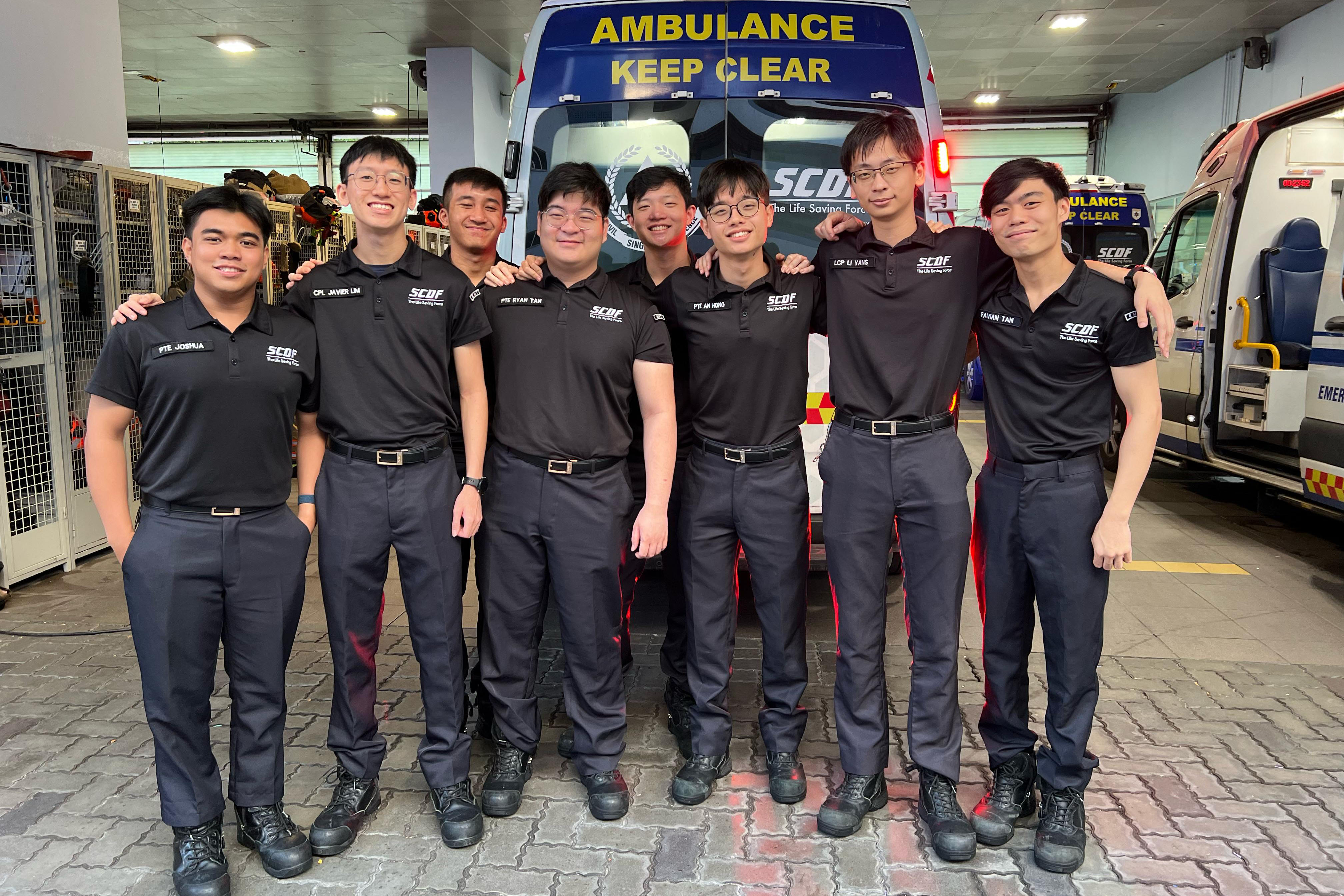
Duty to SERVE
LCP Chen is part of Project Serve, a Singapore Civil Defence Force (SCDF) attachment programme for SAF medics to gain experience in managing medical emergencies before they are posted to a unit. He began his 6-month attachment last October.
During the Committee of Supply debates on the defence budget, Senior Minister of State for Defence Heng Chee How highlighted that the collaborative programme enhances these combat medics’ ability to respond to critical incidents.
“Such experiences sharpen our medics’ clinical skills and ensure that they are well-prepared to respond to emergencies,” he said in Parliament on 3 Mar.
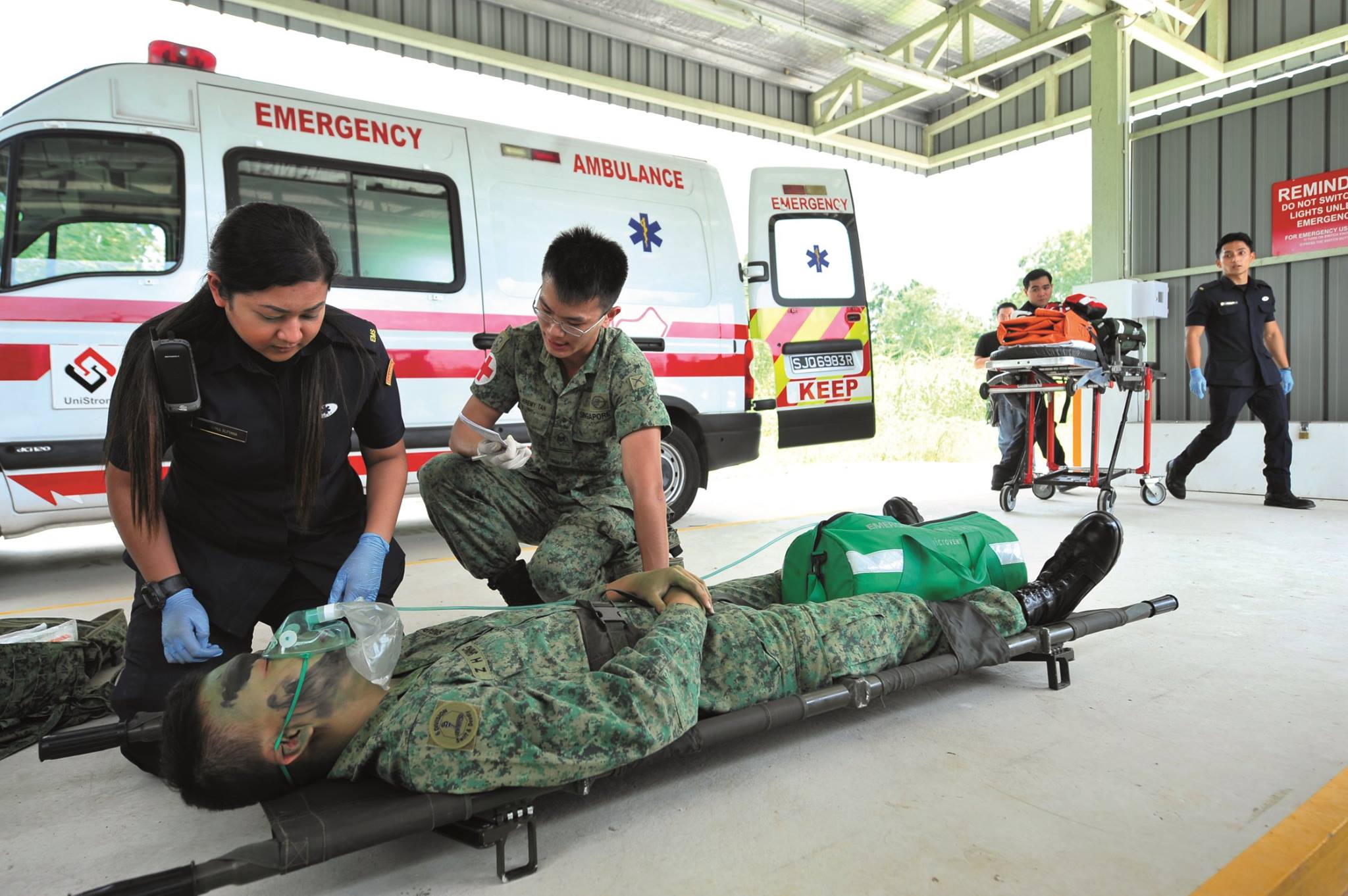
Mr Heng also announced that the SAF will acquire a new fleet of ambulances, equipped with mechanical chest compression devices and powered stretchers like those used by the SCDF.
“This will alleviate the challenges faced by a lean ambulance crew, consequently resulting in enhanced patient care.”
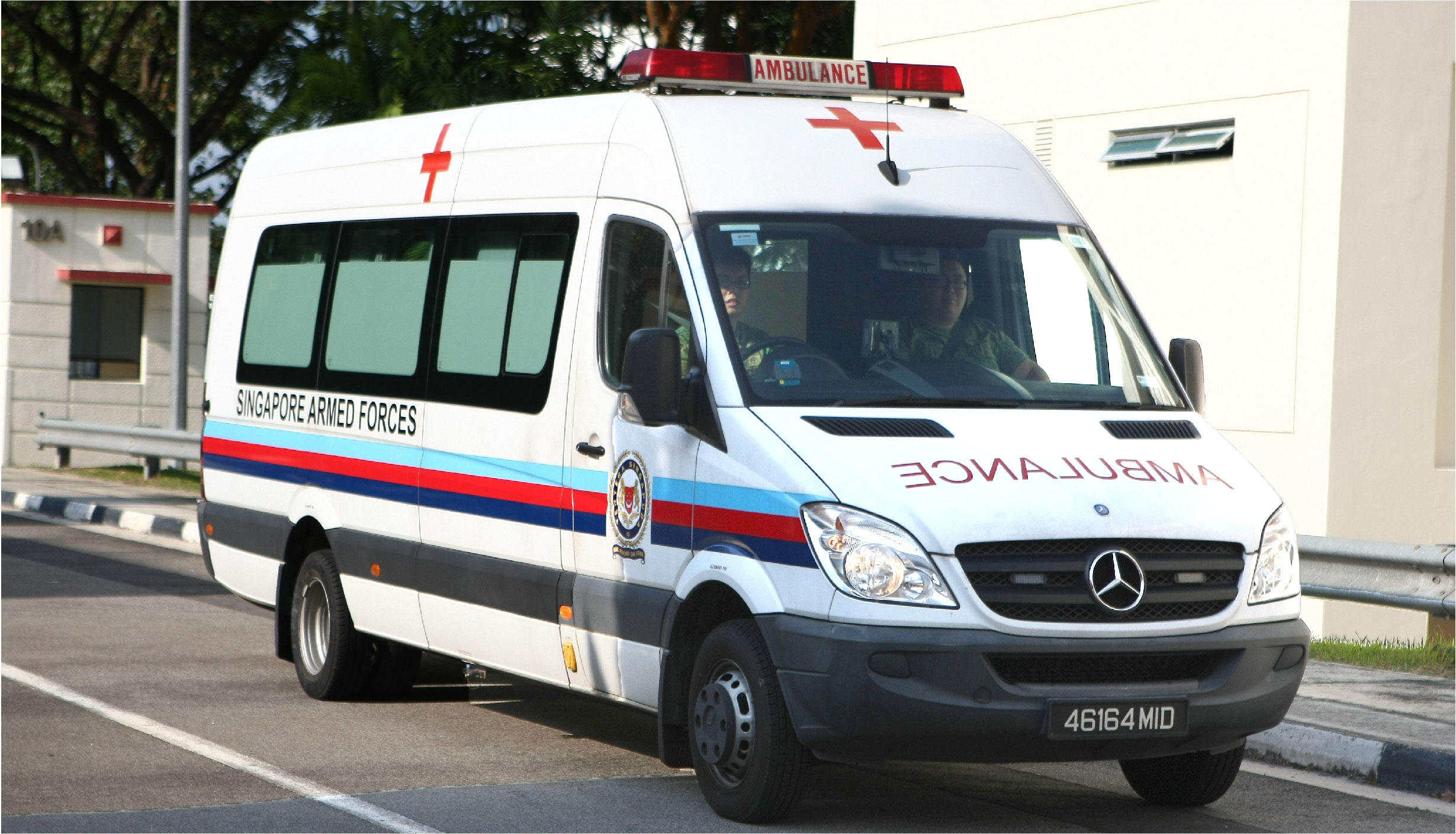
Although LCP Chen has gone through his fair share of major emergencies during his attachment, that traffic accident made the greatest impact on him.
In a typical dispatch, the NSF EMT usually assists the paramedic by taking a patient’s vital signs and carrying out intervention treatment under supervision.
During that incident, his paramedic assessed that LCP Chen - then about three months into his EMT role - was ready to take on handling the non-emergency patients.
He tended to minor injuries like sprains, bruises and cuts.
“It was the first time I went through the full Patient Assessment Model (to evaluate a patient’s condition and injuries), made my own decisions and treated the patients on my own,” recalled the 19-year-old.
He knew he did well when the crew were packing up to leave. “The families of the patients came over to thank me, saying that I managed to provide a lot of comfort in a very chaotic scenario.”
“I felt like what I was doing in national service (NS) had made a difference, and it made me feel like all the effort put in was worth it,” he recounted.
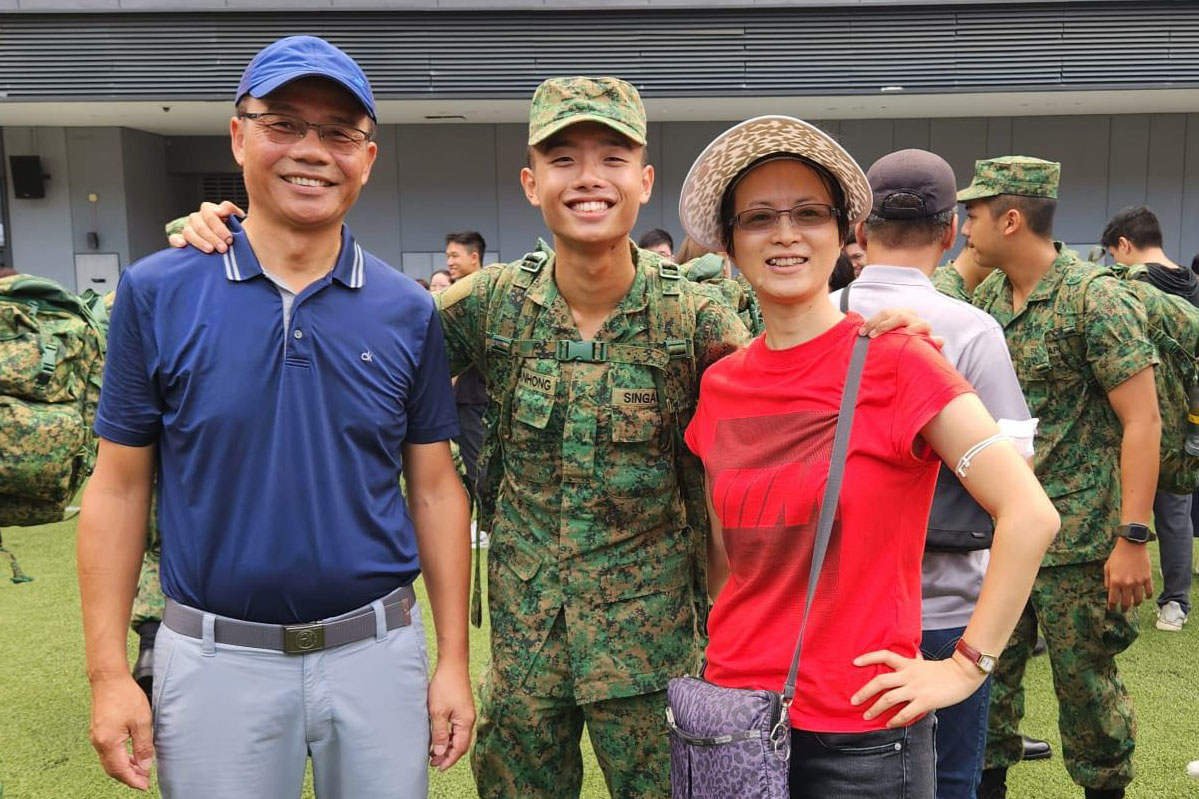
From zero experience to saving lives
LCP Chen had not expected to become a combat medic. A chest injury just as he was finishing his foundation term in Specialist Cadet School (SCS) put him out of course.
He was then posted to the SAF Medical Training Institute, where he went through their 3-month EMT course.
“I was sceptical and nervous… Unlike some of the other trainees there, I didn’t have experience in the medical field,” said LCP Chen, who studied in Anglo-Chinese School (Independent) and was part of their symphonic band and robotics club.
But he was determined to learn as much as he could. “I paid extra attention to lectures (and) asked for help when I was struggling.”
With the support of his peers and instructors, LCP Chen graduated as one of the top medics of his cohort.
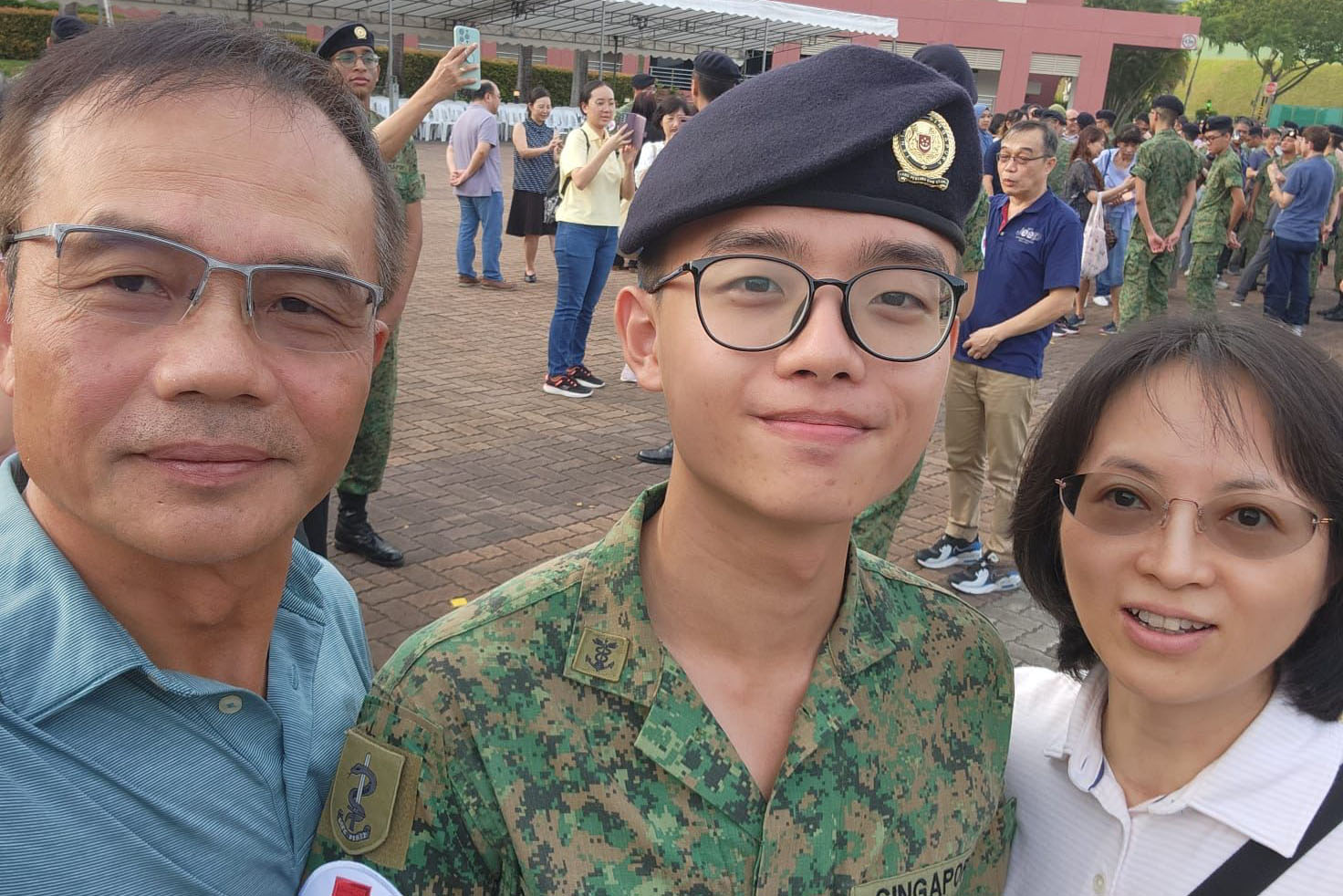
Learning life-long skills
LCP Chen will complete his SCDF attachment at the end of March and return to the SAF in April.
Operating in the SAF will be different from the civilian environment he worked in as an EMT in the SCDF, he said. For one, combat medics are trained to work with limited resources, in environments such as outfield.
But the fundamentals of emergency medical care remain, along with valuable soft skills needed for the role.
“The most important skill I will take back to the SAF, that’s also useful to my life, is the ability to remain calm in hectic scenarios,” said LCP Chen, who will be pursuing a Computer Science degree after he reaches his Operationally Ready Date this November.
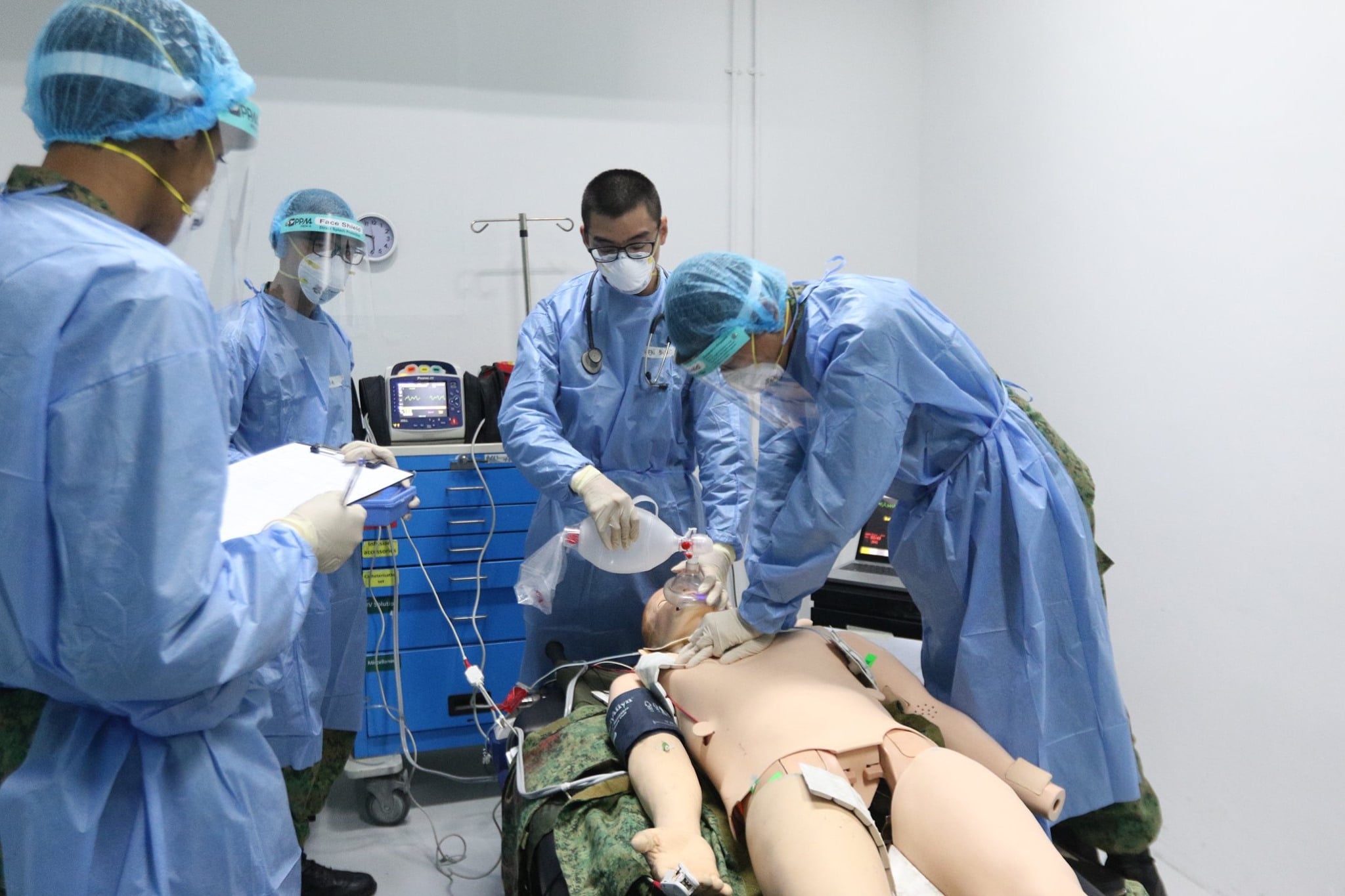
The experience has also developed his competence in dealing with medical emergencies.
“For me, it was very powerful that I went from having no medical skills to (being able to) provide value to my (dispatch) crew. I would say that today, I’m quite confident to be able to respond to any emergency that is given to me.”
ALSO READ IN PEOPLE
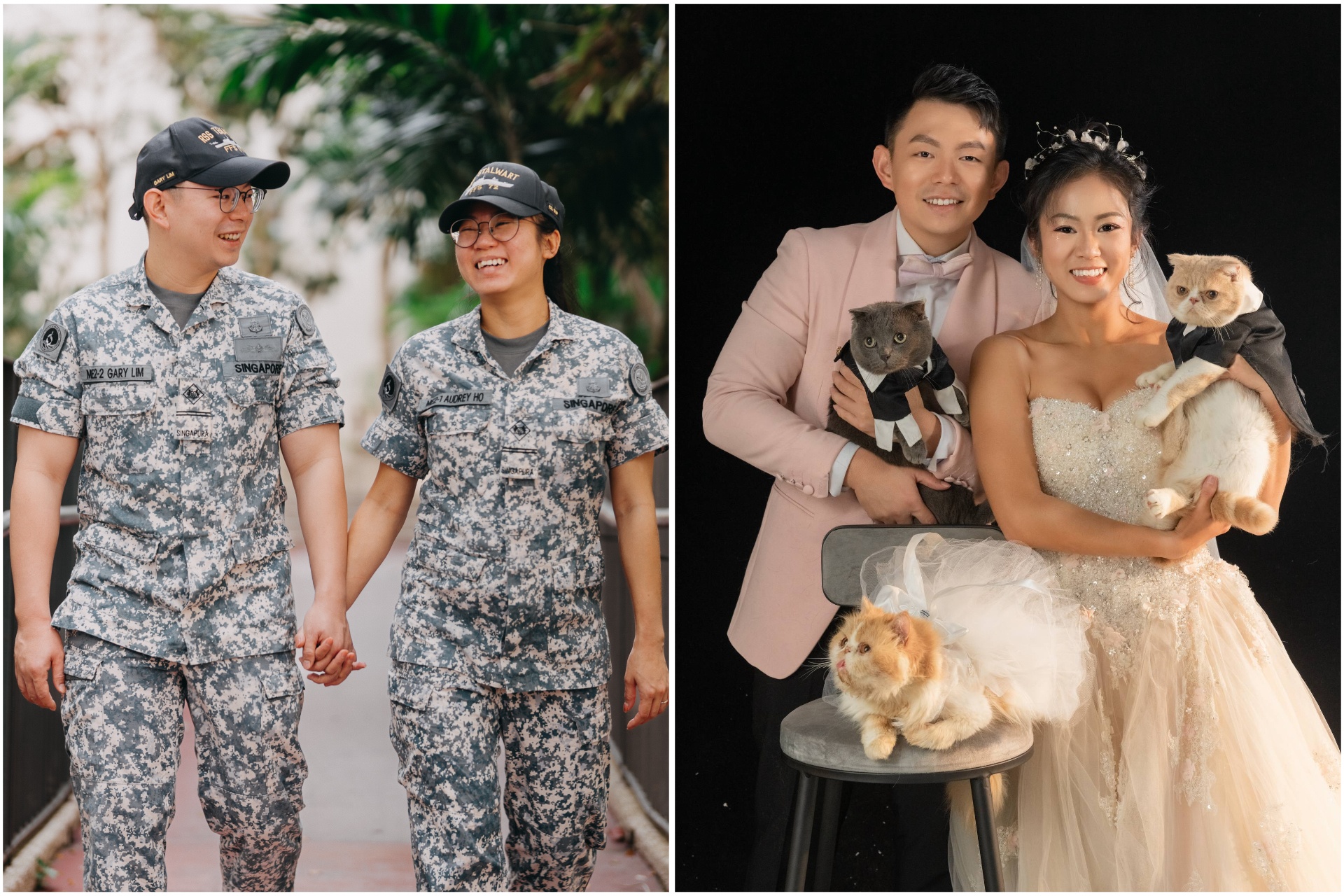
When two hearts set sail together
13 Feb 2026
Naval engineers ME2 Gary Lim and ME2 Audrey Ho share how they navigate love, military service, and (soon) parenthood.
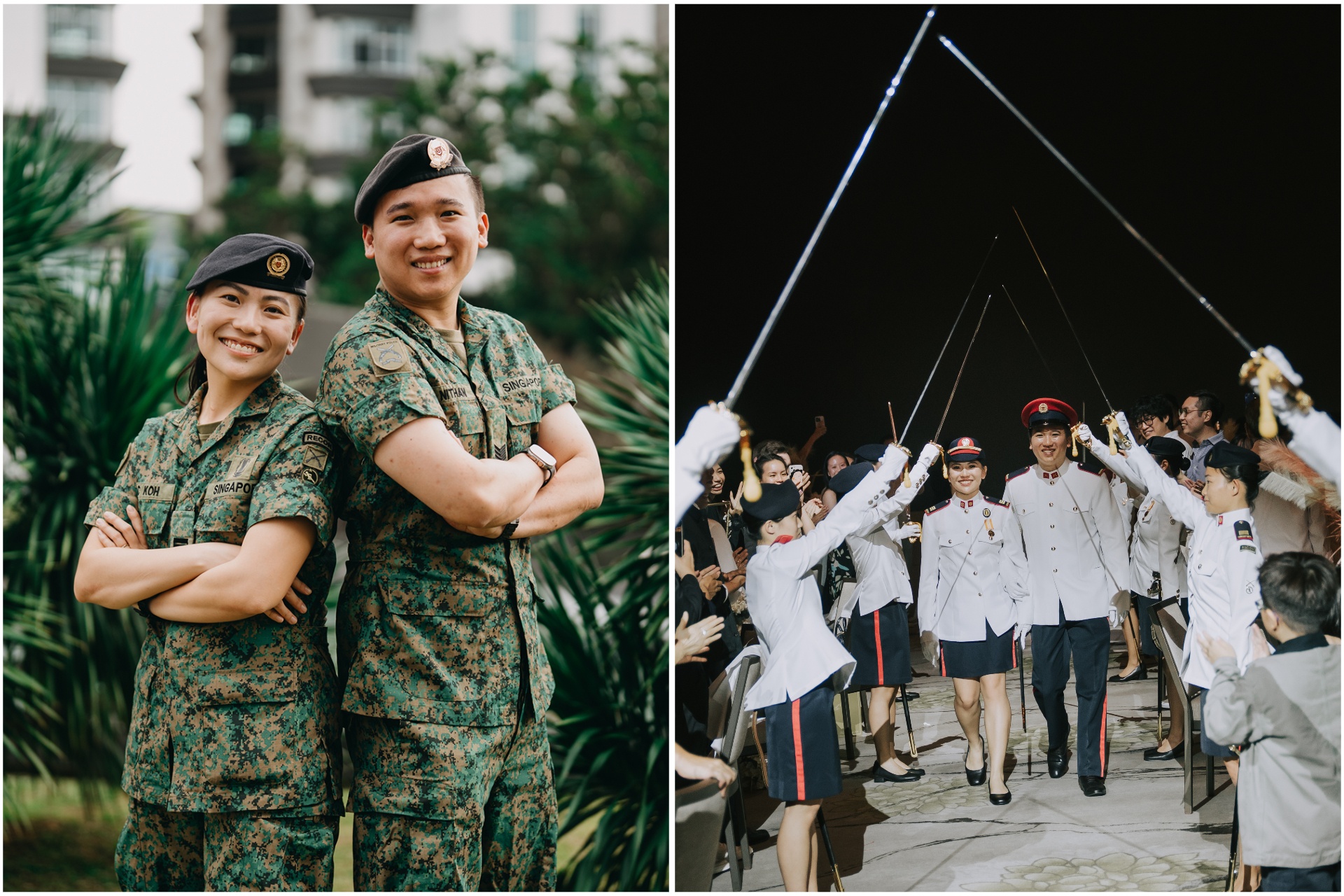
I’ve always got your back
11 Feb 2026
She’s an Army officer, and he’s the (NS)man supporting her dreams. CPT Koh Xinci and 3SG (NS) Nitro Chan share their love story with us – including their unique wedding!
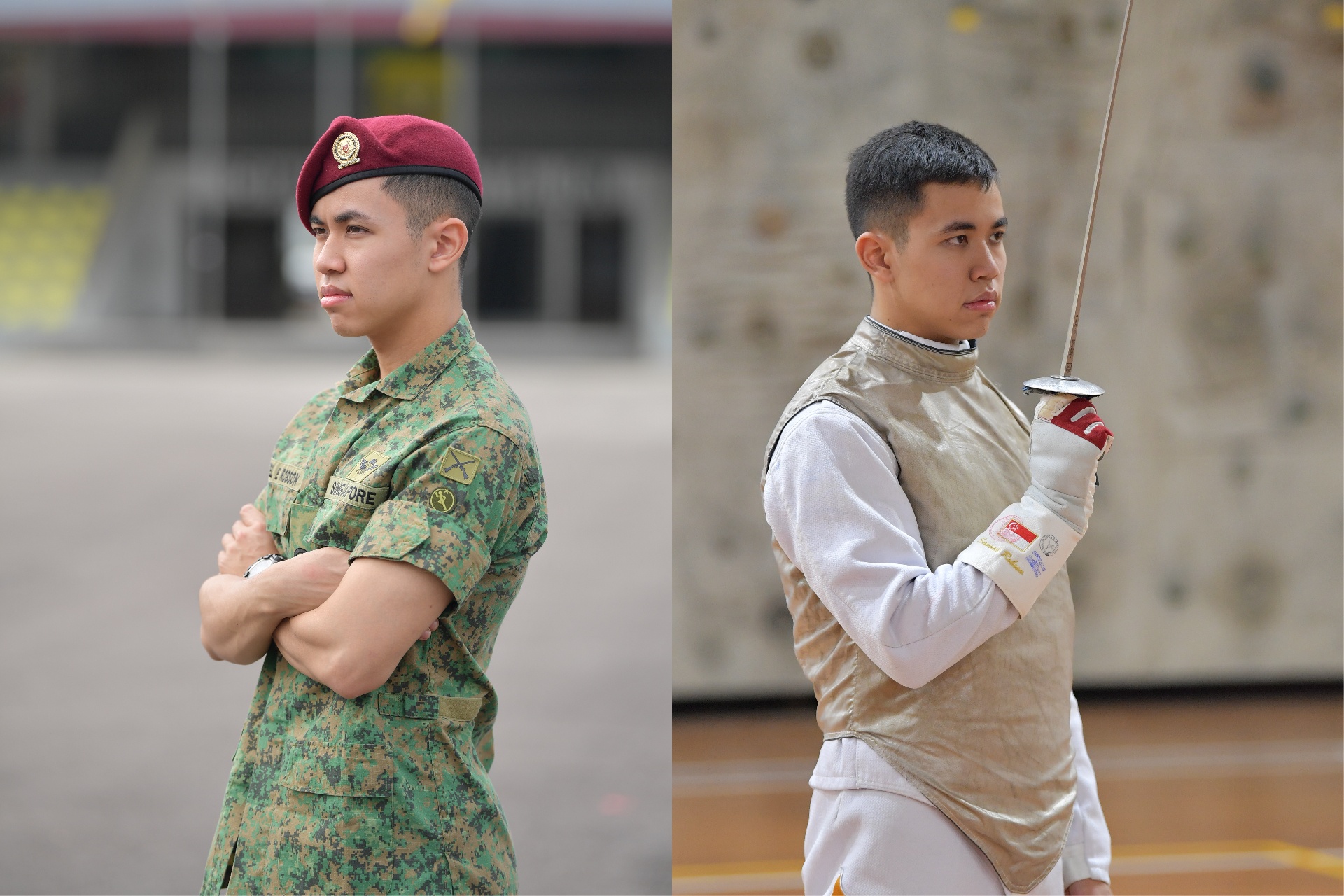
He’s an NSF Commando & medal-winning fencer
28 Jan 2026
His team won gold at the SEA Games 2025, and he hopes to represent Singapore in more competitions to come. Meet fencer CPL Samuel Elijah Robson, who is serving as a Commando during his full-time NS.


